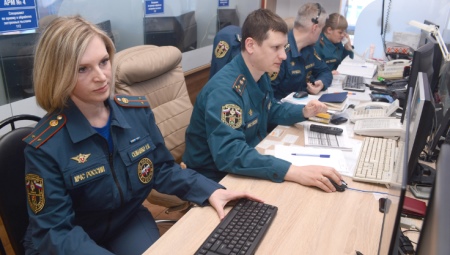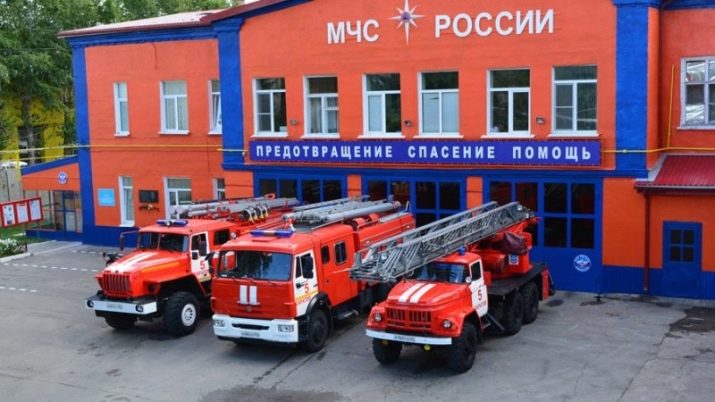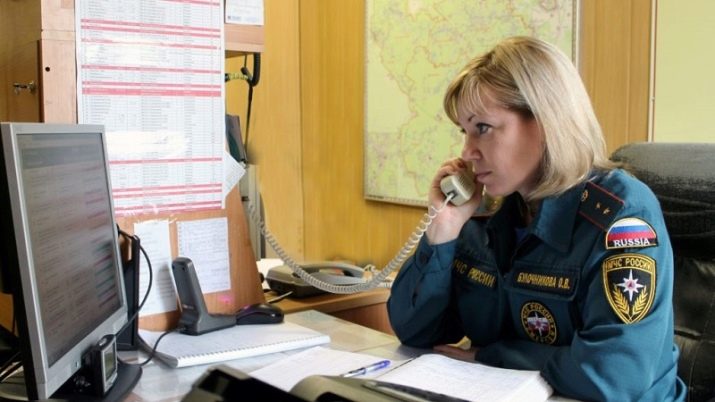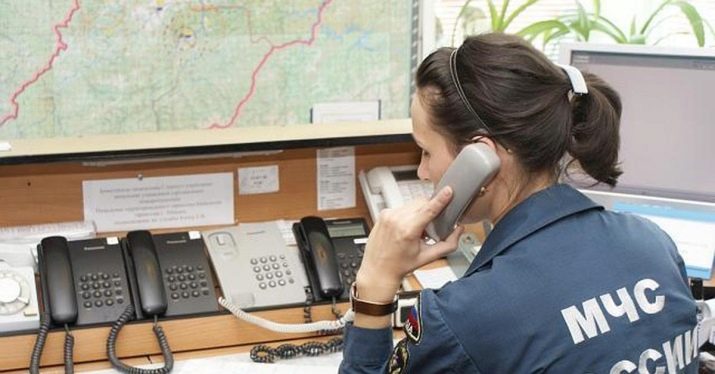All about the profession of a fire brigade dispatcher

The profession of a fire brigade dispatcher is a very responsible one. And, probably, not everyone will like it. However, there are those who seek to master this particular specialty and work in the fire department. And for this you need to know everything about this profession.
Peculiarities
Fire dispatcher profession has its own characteristics, which must be taken into account when deciding to take this position. This work has strict schedule... By going on duty, you will no longer be able to leave for your business or leave early. You need to understand that it is important to be at a combat post, because an emergency situation can occur at any time, and the dispatcher is the person who first learns about it and helps coordinate further actions.
Work implies well-coordinated actions of the whole team, in which a lot depends on each one. And the dispatcher is also a member of this team. The realities are such that the profession belongs to the category of those when you constantly have to be collectedready any minute make a decision quicklyand also support the one on the other end of the line.

Responsibilities
The employee of the fire department communication point is obliged to follow the job description, which contains a number of important points.
- The dispatcher accepts all phone calls coming to the attendant's console, he immediately transfers information on them to the necessary units, and also records it in the call log.
- An employee of this service must act clearly, without making any mistakes.
- He makes an assessment of the situation, paying attention to where the fire occurred: an institution, a residential building, the private sector. Depending on the complexity of the fire, the dispatcher reports what forces may be needed.
- The dispatcher keeps track of where and what fire brigades are at the moment. He keeps in touch with them. He can orient himself and decide which team is easier and faster to approach the scene of the incident, and also has an idea of which equipment is in the unit and which is involved in the field.
- The dispatcher notifies the team about the alarm and informs about where to go and what equipment will be required.
- A communications worker should be well versed in the city and region, know what is located, where it is located and how it is more convenient to drive up to the fire site.
Operationally, this specialist is subordinate to the chief of the shift on duty during his working hours. But in general, his work is supervised by the head of the dispatcher service of the unit.

Knowledge and skills
Concerning knowledgethat will be required to perform this work, then they should apply to the area of technology with which to work. These are means of communication, a personal computer, an interactive map. All this you need to know thoroughly. Since the dispatcher is obliged to take the call, enter a message in the log, notify the team about an emergency, he you need to be able to act quickly, have a good memory and reaction.
Requirements are also made for knowledge of the area. This plays a huge role, since the life and salvation of people depend on the speed of the dispatcher's response and the formation of the brigade. How to get to the place faster, how to arrange the extinguishing agents more conveniently and distribute the forces are very important nuances. And it all starts with the dispatcher. Of course, the dispatcher must know the name of the equipment that goes out on fires, how it works and in what cases it is necessary. No one requires a thorough knowledge of technical aspects from this employee, but he should have a general idea of these nuances. This will make his work easier and give him confidence in difficult situations.
This profession will require not only the above knowledge. Some character traits are also very important. For example, employee must be very attentive to details, restrained, stress-resistant, able to listen to a person, calm down, ask the right questions if necessary, because sometimes a person calls the fire department in a state of panic, fear and anxiety... It is difficult for him to concentrate on the main thing, and the dispatcher needs to clarify important nuances. It sometimes depends on this how quickly it will be possible to provide assistance and save people. In some cases, the specialist must guide a person how to act in a given situation... For example, how to hold out in a burning apartment until the arrival of firefighters, if all paths to rescue are cut off. Or how to provide assistance to a person, if he needs it, before the arrival of qualified specialists. Often, these first steps are essential to saving lives.
Other important skills for the dispatcher will be competent speech, clear diction, a confident voice, the ability to provide a person with psychological support in an emergency and make him perceive information and act correctly, despite the panic attacks that are inevitable in such cases.

A responsibility
The dispatcher is responsible for improper performance of his duties, for violation of labor regulations, discipline in accordance with the existing legislation and regulations of the Ministry of Emergencies. He must take a responsible attitude to work, fulfill all requirements, act according to the instructions.
But the most important, moral, aspect is the dispatcher, like any EMERCOM employee, is responsible to peoplebecause there are human lives behind every wake-up call. And a lot depends on the correct actions of the dispatcher.
Education
If you want to become a dispatcher of the Ministry of Emergency Situations, you can go in different ways. Higher education in this case is optional. You can have a diploma from a technical school or college in a technical or humanitarian specialty. The main thing is to have the necessary skills and a great desire to master this profession. First, in any case, there will be an internship, during which you can see how experienced employees work and get acquainted with all the nuances.
In addition, with any basic education, you can always take specialized courses. There are training centers for specialists of the Ministry of Emergency Situations, where you can also get the relevant knowledge.

Workplace
The work of the PChS dispatcher is based on duty... The schedule can be different, it depends on the organization. But in any case, the work is organized in such a way that after the shift, employees have enough time to rest and recuperate.
Overworking in such an organization is unacceptable, as it always requires increased attention and quick response.
The workplace is equipped with the necessary equipment for receiving and recording calls, as well as the ability to control the movement of equipment along the streets and monitor the general situation. There is a lounge and dining room, where employees can take turns to take a short break, drink tea or coffee, and have lunch.
The salary of a dispatcher of the Ministry of Emergency Situations depends on many factors: work experience, region, awards and allowances. For example, a trainee cannot immediately expect to receive high wages. But over time, it gradually increases. On average, a dispatcher can receive from 20 to 40 thousand rubles.









